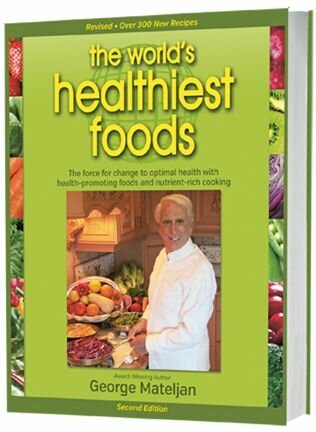 The World's Healthiest Foods are health-promoting foods that can change your life.
The World's Healthiest Foods are health-promoting foods that can change your life.
Try our exciting new WHFoods Meal Plan.
 The World's Healthiest Foods are health-promoting foods that can change your life.
The World's Healthiest Foods are health-promoting foods that can change your life.
Try our exciting new WHFoods Meal Plan.
About 16 million people—roughly 5% of the U.S. population—describe their diet plan as "vegetarian," and this number has been gradually increasing in recent years. In general, this term is shorthand for a diet where most of the calories come from plant food. However, the vast majority of vegetarians consume some animal foods in their meal plan, and for this reason do not refer to themselves as "strict vegetarians" (or "vegans") who carefully avoid all animal foods.
Below is a list of popular terms used to describe various types of vegetarian diets.
Research on vegetarian diets is extensive, involving more than 100,000 study participants over time. Vegetarian diets have repeatedly been shown to lower the risk of chronic diseases, including: atherosclerosis, cancers (select types), coronary artery disease, hypertension (high blood pressure), insulin resistance, metabolic syndrome, stroke, and type 2 diabetes.
The majority of studies on vegetarian diets show increased risk for low intake of vitamin B12. Some studies on vegetarian diets have shown increased risk of protein deficiency, iron deficiency, decreased muscle creatinine, and elevated blood levels of homocysteine. From our perspective at WHFoods, a high-quality and balanced vegetarian diet can typically minimize these risks, with the possible exception of vitamin B12. For more on this B12 issue, please see our specific Q & A, "Is vitamin B12 really a problem in a vegetarian diet?"
At WHFoods, we are often asked specific questions about vegetarian diets. You can click on any of the 12 specific Q & A topics below for practical information on each topic.
To see the research articles we reviewed in the writing of these articles, see here.
We receive many questions about gluten-free foods, grain-free diets, and the "wheat belly diet" and whether or not there are legitimate and distinct health issues related to consumption of grains versus wheat versus gluten.
It is impossible for anyone to question the growing popularity of gluten-free foods in the U.S. marketplace during the period of time between 2010 and 2015. In fact, statistics from 2014 show that over 8 billion dollars' worth of gluten-free foods were sold in the U.S. supermarkets! Along with this gluten-free trend has come a wealth of debate about wheat as well as an greater popular interest in grain-free eating, wheat-free eating, and the "wheat belly diet." We have taken a close look at health research studies in this area, and we have created a short list of grain-related questions to provide you with quick access to practical information in this area. Just click on the questions below for up-to-date findings and WHFoods recommendations about these often misunderstood grain-related topics.

Everything you want to know about healthy eating and cooking from our new book.

Order this Incredible 2nd Edition at the same low price of $39.95 and also get 2 FREE gifts valued at $51.95. Read more